Recently a new study was published in Global Ecology and Biogeography about the global dark diversity of alien plants. The study was led by Bruno who recently finished his PhD in our workgroup. Predicting new invasion events is difficult, but crucial to mitigate associated threats. So, the authors used the dark diversity concept to estimate the dark diversity of alien plants for global regions, which shows how many potential new alien species could arrive in the region in the future.
Paganeli, B., Tordoni, E., H. Seebens, & Pärtel, M. 2025. Observed and dark diversity of alien plants across the world. Global Ecology and Biogeography 34: e70142.
This year our workgroup autumn seminar took place in Jõgeva County in Mokko Country Hotel. Despite the grey and drizzly weather, we still enjoyed being in the autumnal countryside, and the hospitality of the hotel host. Our topic of the seminar was 'Macroecology in the Anthropocene' and we discussed different ways how to analyse the human impact on nature in natural, agricultural and urban settings. Meelis, Eleonora, Enrico, Oscar, Blanca and Juni presented their fresh results and new ideas, and we were also lucky to have a visiting speaker Aveliina Helm from the University of Tartu landscape biodiversity workgroup.
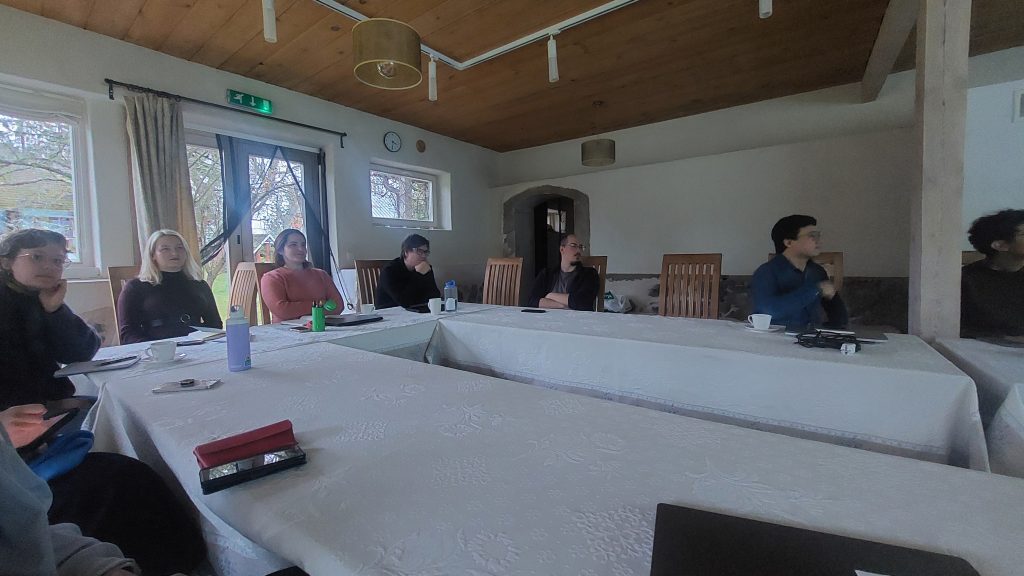
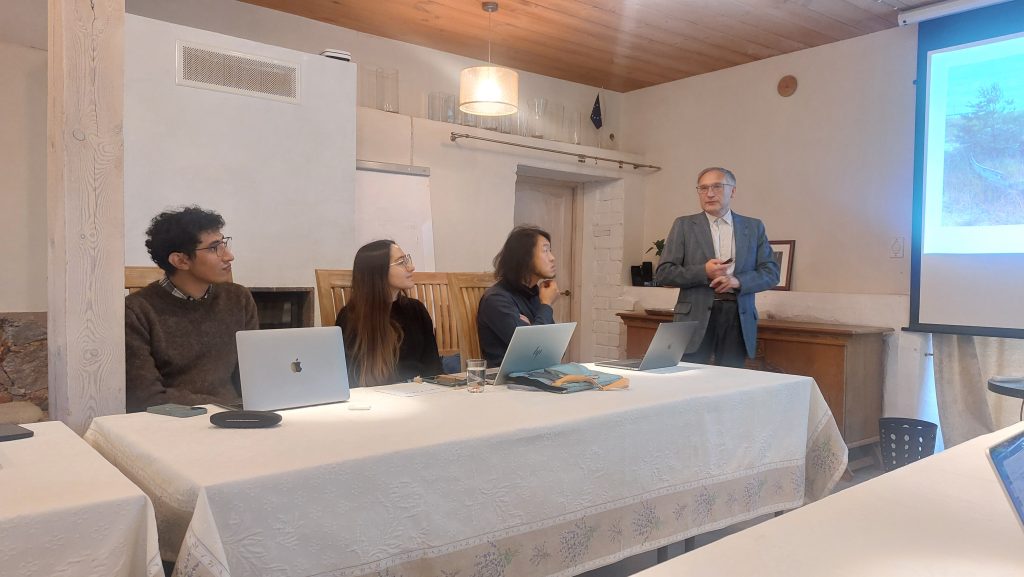
On 23-24 October, the Nordic Computational Biology Conference 2025 (Estonia + Finland) was held in Tallinn, and our workgroup was represented by Enrico. At the conference researchers from Estonia and Finland shared their latest findings in the fields of computational modelling, metabolomics, and microbiology. Enrico presented a talk "Leveraging plant co-occurrence data to assess global biodiversity potential", showcasing the preliminary results of our new study within the framework of DarkDivNet project.
On 15-17 October, Meelis participated in the 36th Annual Conference of the Academia Europeae Building Bridges 2025. He was welcomed as the new member of the academy and also presented his main research interests.
Photos: Milan Chytrý
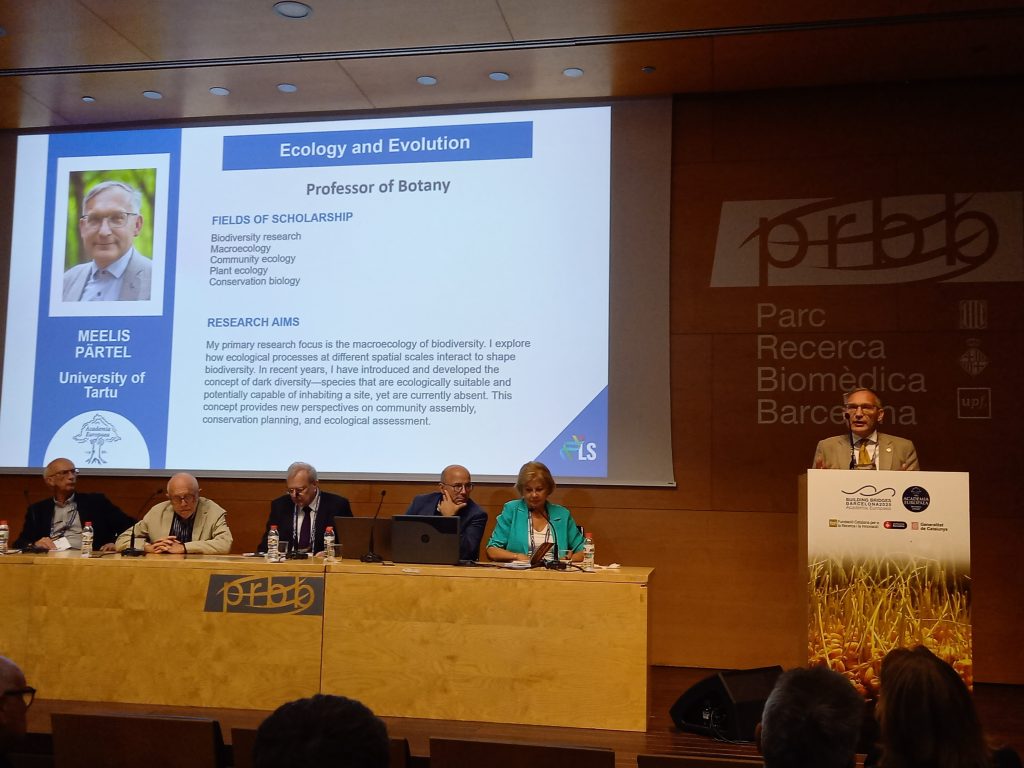
On 1st October Carlos started his new position as a distinguished professor at the Biological Mission of Galicia of the Higher Council for Scientific Research (CSIC) located in Pontevedra in Spain. A few weeks later several of our workgroup members (Blanca, Eleonora, Enrico and Meelis) visited him in Spain to continue working on ongoing projects and see how Carlos is settling in his new position. Carlos will also be affiliated with the University of Tartu as a visiting professor.
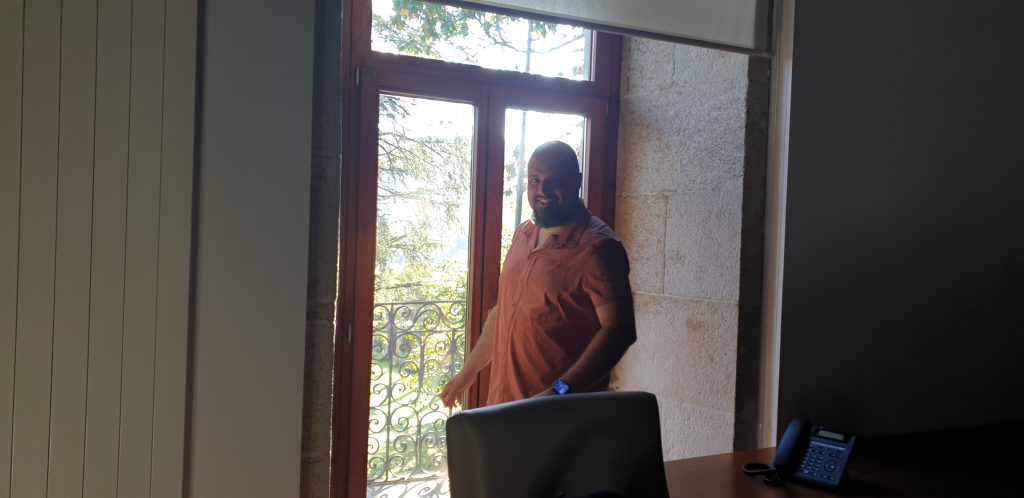
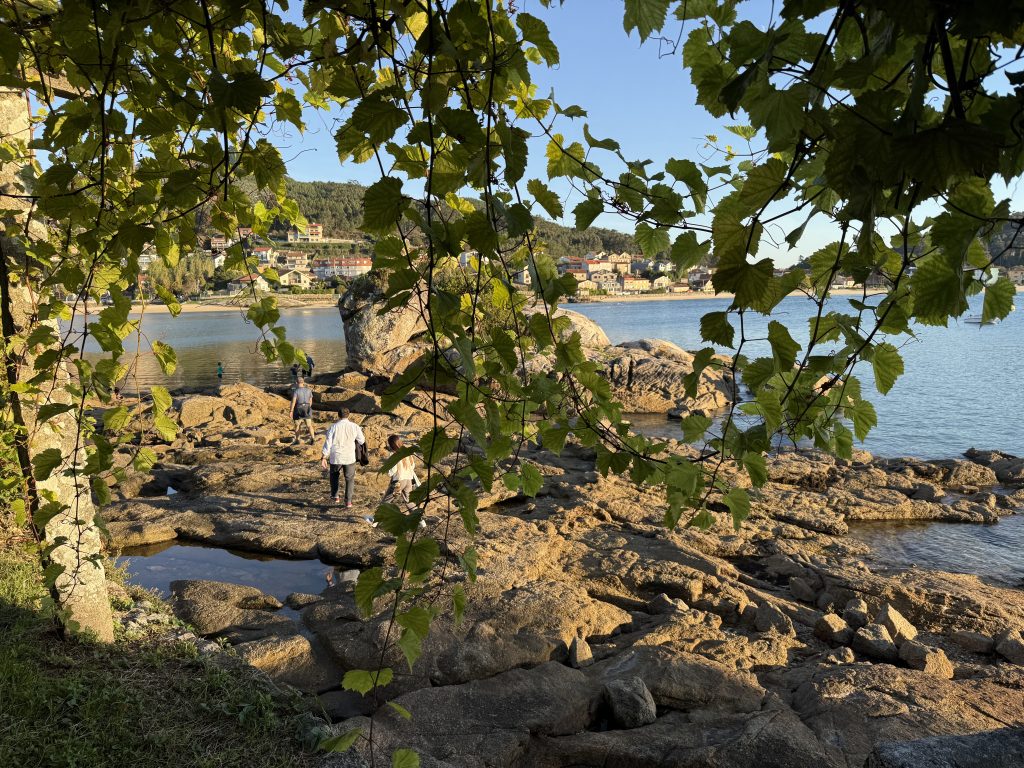
After some time when we didn't have any MSc students in our workgroup, we are now especially lucky that two students have decided to do their Master thesis with us! Mari Tiitsu also finished her BSc studies this summer when she defended her thesis on the topic of dark diversity of insects. She will continue her MSc thesis on a similar topic, but will focus more specifically on the dark diversity and functional traits of butterflies. Mari's supervisors are Meelis and Mats.
Marta Miia Pärnpuu finished her BSc studies this summer and we are fortunate that she decided to continue her MSc studies in our workgroup as well! While her BSc thesis was about using AI in estimating species co-existence patterns then her MSc thesis will focus on gammaproteobacteria. She will explore where and why the biodiversity of these bacteria is high. Meelis will continue as Marta Miia's supervisor.
Twice a year the Botany and Zoology departments organise an Eco Fair where biology students at the bachelor or masters level can meet with different workgroups, find a thesis topic or explore practical work opportunities. Our workgroup has also always joined the event and this time the macroecology workgroup was represented by Eleonora, Daria and Riin.
This autumn we are also happy to welcome Gerard Martínez Devesa, a visiting PhD student from the CIBIO Research Institute at the University of Alicante (Spain). His research focuses on the taxonomic and functional diversity of arthropods (spiders and beetles) in deadwood microhabitats in Mediterranean forests. He's visiting our workgroup for three months, working with Meelis to explore which microenvironmental factors and functional traits influence the dark diversity of beetle and spider communities in different deadwood microhabitats of Quercus suber forests.
We are happy to host visiting PhD student Wengang Zhang from China! Wengang is a PhD student at the School of Ecological and Environmental Sciences, East China Normal University. His research focuses on biological invasions, particularly exploring how dark diversity can enhance our understanding of some classic invasion hypotheses. He is currently visiting our workgroup for one year to collaborate with Meelis on projects using DarkDivNet plant survey data to explore the relationships between native and alien diversity through the lens of dark diversity. Previously, he has worked with Meelis on studies examining the establishment of freshwater fish species.